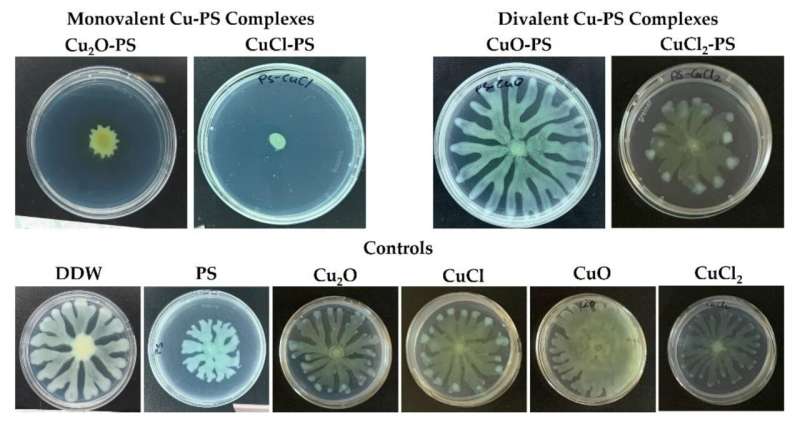
Antibiotic resistant bacteria are becoming more and more of a concern as traditional sources of anti-microbial treatments become less effective. Therefore, researchers at Ben-Gurion University of the Negev are looking farther afield for promising compounds to treat wounds and infections.
Prof. Shoshana (Mails) Arad and Prof. Ariel Kushmaro, Prof. Levi A. Gheber and Ph.D. student Nofar Yehuda joined a metal and a polysaccharide together and discovered the new compound worked well against bacteria and fungus (Candida albicans) because of the longer and denser spikes on its surface that poked holes in the membrane and killed off the bacteria and the fungus.
“A polysaccharide is a carbohydrate with linked sugar molecules and by adding a metal (Cu), we were able to create an effective new material,” according to the researchers.
Their findings were published recently in Marine Drugs as the new compound is derived from marine red microalga Porphyridium sp.
Commercialization of these new compounds could come sooner rather than later.
“In light of the increased resistance to antibiotic and antifungal agents, there is a growing need for the development of new and improved treatments. BGN Technologies holds a patent application ready for licensing in the field,” say BGN’s Galit Mazooz-Perlmuter and Anat Shperberg Avni. BGN Technologies is Ben-Gurion University’s technology transfer company.
More information: Nofar Yehuda et al, Complexes of Cu–Polysaccharide of a Marine Red Microalga Produce Spikes with Antimicrobial Activity, Marine Drugs (2022). DOI: 10.3390/md20120787
Provided by Ben-Gurion University of the Negev

